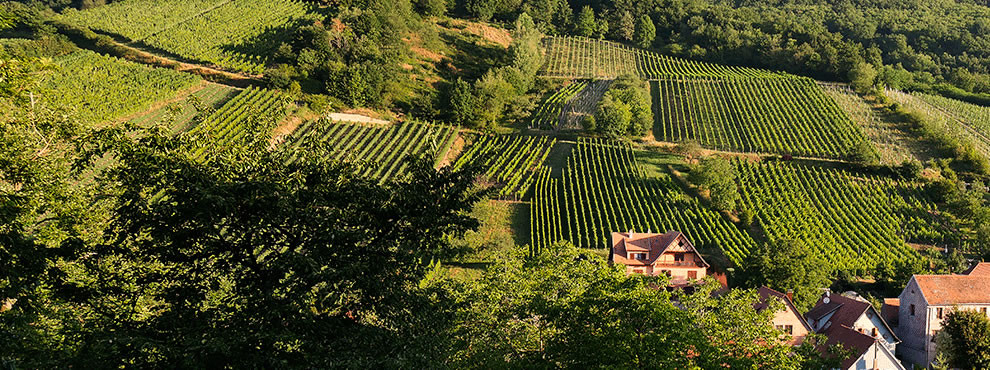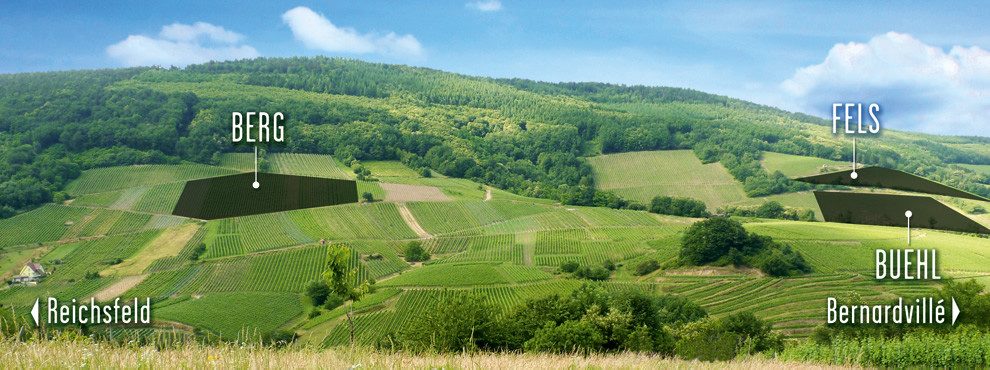Une mosaïque de sols complexes
Granite, limestone, clay, schist and sandstone… Numerous grape
varieties thrive here.
• The blue schist found in the Sélections Parcellaires (Single
Vineyards) and the Riesling Via Saint-Jacques vineyards gives
this terroir its originality and its minerality to the wine.
• The earth in the Fels vineyard is made up of shallow soils of
schist almost breaking through to the surface.
• The earth in Buehl is made up of deeper, finer soils and that of
Berg contains more quartz.
• The soil of the Baden Riesling is composed of granitic sand
and arkose that give this fruitiness to the wine.
• The Silvaner is planted in clay-limestone soil over a shell-
limestone subsoil dating from the Triassic period (235 to 245
million years), imparting a floral character to the wine.
• The soil and the subsoil of the Gewürztraminer are composed
of limestone.
• The soil of the Pinot Noir is granite.
This rich mosaic gives birth to strong mineral wines with sharp
personalities.
A sunny, hot and dry
semi-continental climate
In the vineyards, the hot, dry summers, with the rough winters
and the cool spring nights help the vines to synthesize the aromas.
The vineyards, due to their particularly high elevation, receive
an optimum amount of sunshine.
Ideal conditions for Single Vineyards,
in Alsace
Three extraordinary wines, which come from vines that are around
20 years old.
• Fels: this parcel, with a south-easterly aspect and receiving the
morning sun, conserves great freshness.
• Buehl: south-facing, shows a more exuberant character.
• Berg: its directly south-facing vines and its altitude are reflected in
the finesse of its fruit and its crisp character.

